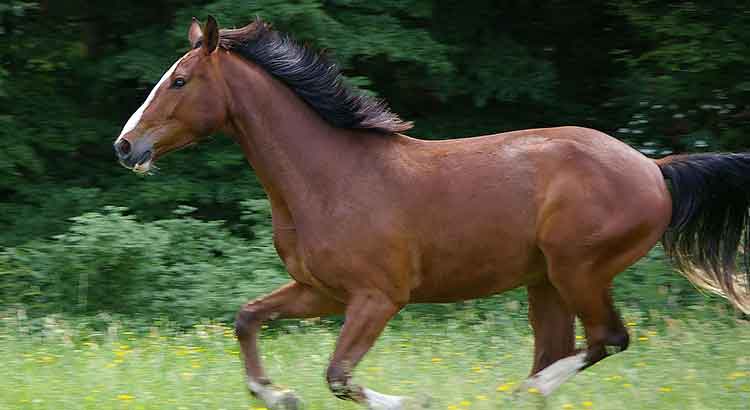Do your horses ever experience discomfort? Horse colics can be worrying, but understanding their causes, treatment, and prevention can help keep your equine friends healthy and happy.
Horse colics can arise from various factors, including diet changes, intestinal blockages, or stress. Prompt veterinary attention is crucial for diagnosis and treatment, often involving medications or surgical intervention if necessary.
Understanding how to recognize and address colic symptoms can make all the difference in your horse’s well-being. Let’s explore the ins and outs of horse colics together to ensure your equine companions stay in top-notch shape.
Symptoms
Recognizing the signs of horse colics is vital for early intervention. Common symptoms include restlessness, pawing at the ground, and sweating profusely. Some horses may repeatedly lie down and get up or roll excessively.
Other indicators include decreased or absent appetite, reduced or absent bowel movements, and changes in manure consistency. Additionally, horses with colic may exhibit signs of abdominal discomfort, such as repeatedly looking at or biting their sides.
Understanding these symptoms can help you take prompt action to alleviate your horse’s discomfort and prevent potential complications. If you notice any of these signs, contact your veterinarian immediately for proper diagnosis and treatment.
Causes
Dietary changes can trigger horse colics, especially abrupt alterations in hay or grain. Intestinal issues like blockages, caused by ingesting foreign objects or impacted food material, can also lead to colic. Additionally, parasites such as worms can contribute to intestinal discomfort in horses.
Stressful situations, like transportation or changes in environment, can upset a horse’s digestive system and increase the risk of colic. Lack of hydration is another potential cause, as it can lead to impaction colic. Ensuring your horse has access to clean, fresh water at all times is essential for preventing this issue.
Treatment
Treating horse colics often involves a multi-faceted approach. Your veterinarian may administer medications such as pain relievers or muscle relaxants to alleviate discomfort and reduce intestinal spasms. In severe cases or when an obstruction is present, surgery may be necessary to remove the blockage or repair damaged tissue.
In addition to medical intervention, your vet may recommend other treatments to support your horse’s recovery. These could include fluid therapy to address dehydration, as well as dietary adjustments to ease digestive stress. Rest and monitoring are also crucial components of treatment, allowing your horse time to recover while being closely observed for any changes in condition.
Prevention
Preventing horse colics starts with maintaining a consistent and balanced diet for your equine companion. Gradually introduce any dietary changes to minimize the risk of digestive upset. Ensure access to clean, fresh water at all times to prevent dehydration, a common cause of colic.
Implement a regular deworming schedule recommended by your veterinarian to control parasite infestations, which can contribute to colic. Additionally, provide your horse with plenty of opportunities for exercise and turnout to promote healthy digestion and reduce stress.
Minimize sudden environmental changes and stressful situations whenever possible to help keep your horse’s digestive system functioning smoothly. When transporting your horse, ensure proper ventilation, frequent breaks, and access to water to minimize stress and reduce the risk of colic.
Regular veterinary check-ups are essential for monitoring your horse’s overall health and catching any potential issues early on. Your vet can provide guidance on preventive measures tailored to your horse’s specific needs, helping to reduce the likelihood of colic episodes and ensuring your equine friend’s well-being.
FAQ
Q: How can I tell if my horse is experiencing colic?
A: Look for signs such as restlessness, sweating, pawing at the ground, and changes in appetite or bowel movements. If you suspect colic, contact your veterinarian immediately for proper diagnosis and treatment.
Q: What should I do if I think my horse has colic?
A: Contact your veterinarian right away and provide them with details of your horse’s symptoms and behavior. Follow their instructions closely and monitor your horse closely until the vet arrives.
Q: Can I treat colic at home?
A: While some mild cases of colic may resolve with rest and careful monitoring, it’s essential to seek veterinary advice for proper diagnosis and treatment. Attempting to treat colic at home without professional guidance can be risky and may worsen the condition.
Q: What can I feed my horse after a colic episode?
A: Your veterinarian will likely recommend a gradual reintroduction of food, starting with small amounts of easily digestible hay or grass. Avoid feeding large meals or rich feeds immediately after a colic episode to prevent further digestive upset.
Q: How can I prevent colic in my horse?
A: Maintain a consistent diet, provide plenty of clean water, implement a regular deworming schedule, and minimize stress and environmental changes. Regular veterinary check-ups and monitoring are also crucial for early detection and prevention of colic.
Final Thoughts
Understanding horse colics is essential for every horse owner. By familiarizing yourself with the symptoms, causes, treatment options, and prevention strategies outlined in this article, you can be better prepared to recognize and address colic episodes promptly. Remember to always prioritize your horse’s well-being and seek veterinary assistance if you suspect colic.
Additionally, maintaining a healthy and balanced lifestyle for your horse is key to reducing the risk of colic. This includes providing a consistent diet, regular exercise, access to clean water, and minimizing stressors in their environment. By taking proactive measures to promote digestive health and overall wellness, you can help ensure your horse leads a happy and comfortable life.
Lastly, don’t hesitate to reach out to your veterinarian for guidance and support. They are valuable resources for answering any questions you may have about horse colics and can provide personalized recommendations based on your horse’s individual needs. With proper care and attention, you can help mitigate the risk of colic and promote the health and happiness of your equine companion.

